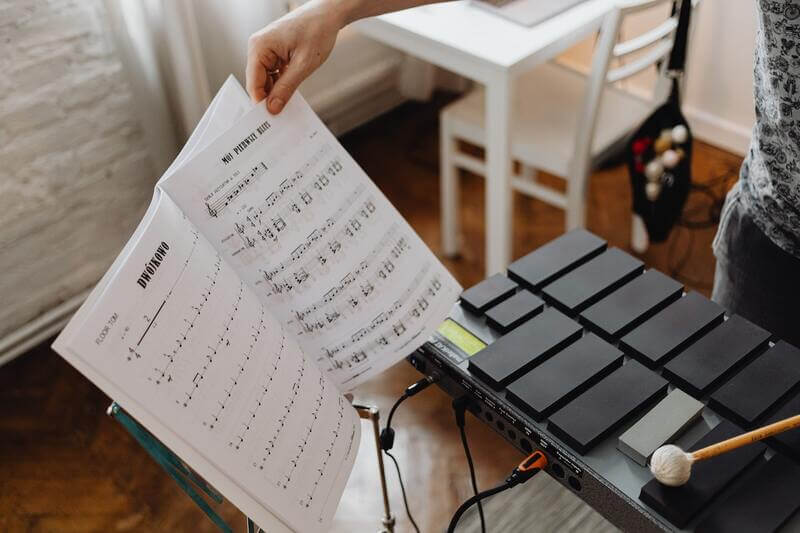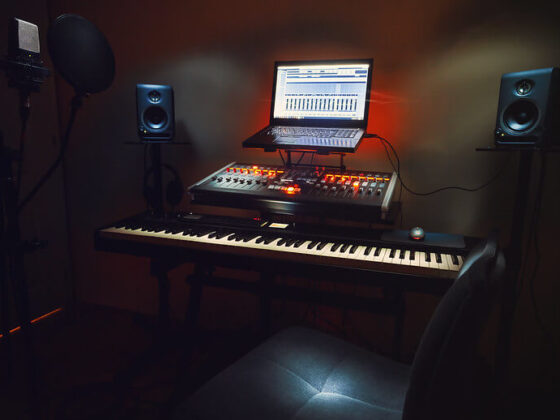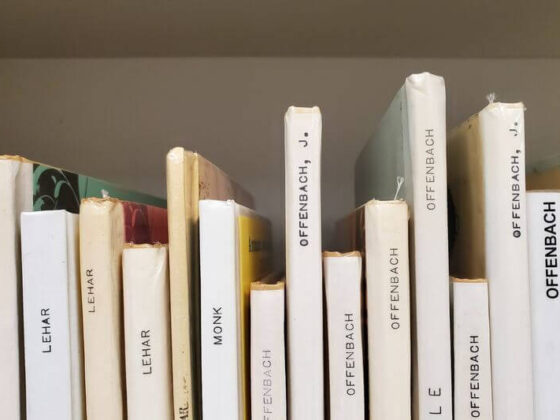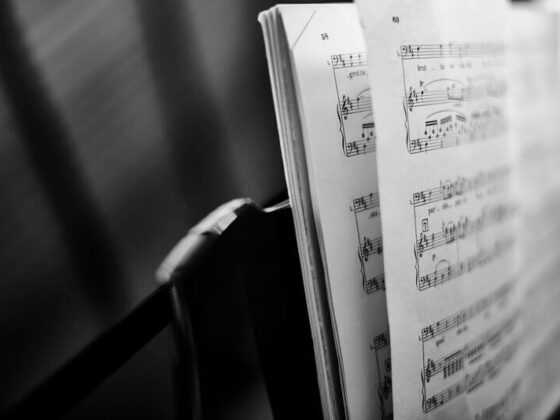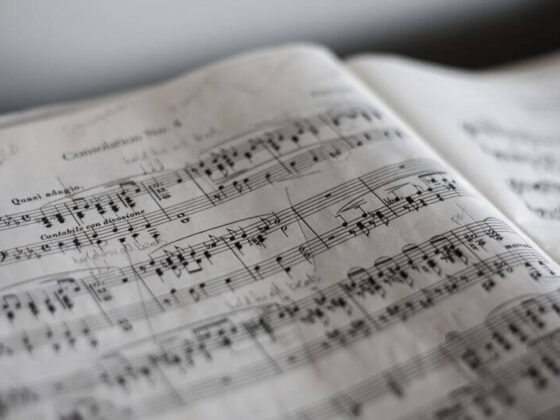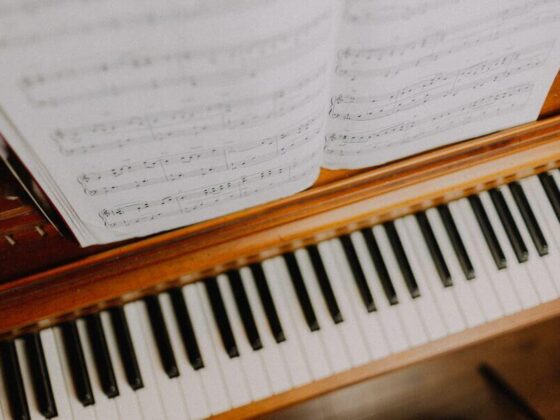While ear training is often overlooked by musicians, it’s a crucial component of musical proficiency. Ear training not only helps you better understand the music you’re playing and composing, but it also greatly improves your ability to improvise and play music by ear. However, if you don’t know where to start, ear training books could be a great option.
In this post, we’re going to be looking at the best ear training books that are suitable to a range of skill levels and age groups. Whether you’re a beginner getting started on ear training or an advanced musician, we’ve got you covered.
Without further ado, let’s jump to the list.
Are you an adult returning to playing the piano? If yes, you might also want to check out these 15 best piano books for returning adults.
Ear Training for the Contemporary Musician
Ear Training For The Contemporary Musician is a comprehensive guide to developing aural skills with a focus on contemporary music styles such as rock, jazz, and blues. This book follows the Musician’s Institute‘s highly praised ear training course step-by-step, covering a wide range of topics including scales, intervals, rhythms, chords, modulations, and more.
In addition, it comes with a code that provides free access to all audio tracks that go along with the book.
What makes this book stand out is that it provides clear explanations for each topic and practical exercises that can benefit both beginners and experienced musicians. It is designed to be accessible to musicians of all levels. For beginners, it is recommended to work through the book step-by-step at a comfortable pace to maximize the benefits of each exercise.
The Real Easy Ear Training Book
I just can’t recommend this book enough. If you’ve ever struggled with hearing the harmony and chord changes in a song, which the book argues to be the common skill found in all great musicians, then this book will be a game-changer.
It’s written by Roberta Radley, a professional jazz musician who serves as the co-chair of the Ear Training Department at Berklee. Radley’s unique approach combines traditional ear training exercises with a practical and fun curriculum.
The book features examples from over 150 well-known songs to make the concepts clearer to comprehend while keeping you fun and engaging. I believe it’s a great perk as most aural training exercises are very boring, and that’s usually what leads to a loss of interest.
This book covers nearly all aspects of ear training, and by the end, you will have a much easier time hearing and identifying harmony.
Essential Ear Training for Today’s Musician
Berklee’s ear training curriculum is highly praised around the world and is one of the cornerstones in music education. That’s why you will see more than one Berklee book on this list. Essential Ear Training for Today’s Musician is the first one we’ll recommend because it covers Berklee’s whole ear training curriculum.
By emphasizing visual learning, this book provides a unique approach to aural training that is particularly useful for enhancing sight-singing skills. Through its clear explanations and practical examples, this book will help you hear and understand the music you’re reading while also improving your notation skills for the music you’re listening to.
Beginning Ear Training (Ear Training: Exercises)
Berklee Press presents another exceptional ear training book that offers a comprehensive and methodical approach to ear training. The book begins with fundamental exercises that cover pitch and interval recognition and eventually advances to more intricate harmonic and rhythmic dictation exercises.
This step-by-step progression makes it ideal for beginners who want to develop their aural skills gradually. With free online audio access and a full answer key, it is also very suitable for self-study and allows you to learn at your own pace.
Manual for Ear Training and Sight Singing
Gary S. Karpinski’s Manual for Ear Training and Sight Singing is an all-inclusive textbook that offers a comprehensive method for honing your ear training and sight-singing skills. The book takes a unique pedagogical approach that is also suitable for music classes and provides detailed explanations alongside a variety of exercises ranging from basic melodic and rhythmic dictation to advanced harmonic progressions.
Whether you’re a music student looking to improve your aural skills or a teacher seeking a reliable textbook for your classroom, this book is an excellent resource for developing your ear training and sight-singing abilities.
Hearing and Writing Music: Professional Training for Today’s Musician
If you’re trying to improve your ear but nothing you’ve tried before seems to work, then you have to give this book a chance. Hearing and Writing Music by Ron Gorow is an incredibly well-organized and well-structured book that will equip you with the essential skills and understanding to hear and understand music. It’s one of those books that if you follow from the start and put in enough effort, you can get remarkable results.
In a step-by-step manner, the book teaches you to musically make sense of what you hear, read, and compose. For composers, arrangers, and orchestrators, this book can be an invaluable resource too. Covering topics like how to compose and hear music without using an instrument, it aims to unlock your musical creativity and new ways of thinking about your musical craft.
What I like most about this book is that the author knows how frustrating ear training can be, so he explains everything in a concise manner and goes straight to the point. The language he uses is also quite accessible, which means non-English speakers can easily follow the book.
Alfred’s Basic Piano Prep Course Activity & Ear Training
Piano players who start ear training early on are at a much higher advantage. However, practicing ear training with little ones can be challenging. Fortunately, Alfred’s ear training book offers a solution. Written in an easy-to-read format, this book teaches aural skills in a visual approach with the aid of coloring activities and fun little exercises.
If you’re a piano teacher or a parent looking for an ear training book suitable for kids, we highly recommend this one by Alfred’s Basic Piano Prep series. If you already follow Alfred’s books for beginners, this one can be a great supplement as well. Overall, it’s an excellent resource for parents and music teachers who want to introduce their little ones to the world of ear training in a fun and engaging way.
Ear Training: A Technique for Listening
Ear Training: A Technique For Listening is a textbook that is widely used in college ear training courses. While it is not intended for self-study as it is designed to be used with an instructor, the book is very well-organized and provides a structured approach to ear training. The topics are organized in a progressive order, and the book covers everything from the most basic concepts to the most advanced ones.
This book can serve as a valuable supplement to your college ear training courses or as a comprehensive resource if you’re looking to improve your aural skills through an academic and systematic approach.
Music for Sight Singing
If you’re looking for a book focused on sight singing rather than ear training, we highly recommend this one. Music for Sight Singing is one of the most comprehensive and well-written books on the topic, providing a systematic approach to teaching core skills for sight singing.
Going through the book, you will acquire skills to imagine how music sounds that are written without an instrument, and effortlessly sing it. Through training exercises on complex theoretical concepts, you will also have a much easier time identifying intervals and various musical elements by ear.
Ear Training for Twentieth-Century Music
Do you also find 20th-century music aurally challenging to comprehend? While not for everyone, this book is an invaluable resource for those who want to gain a deeper understanding of twentieth-century music.
Through decoding the unique structures and components of modern music, this book helps students better understand the complexities of 20th-century music and aurally make sense of it. It is definitely an advanced book, but if you are willing to dig deeper into this abstract genre and open your ears to a new musical universe, this book has a lot to offer.
We hope you found our list of the best ear training books helpful! But we know there are always more great resources out there. Have you come across any good ear training books that we haven’t covered in this list?
Share your recommendations with us in the comments below!

